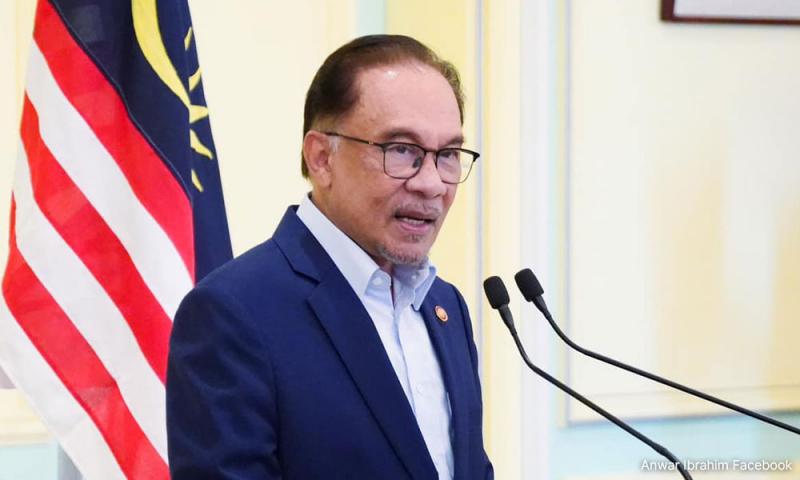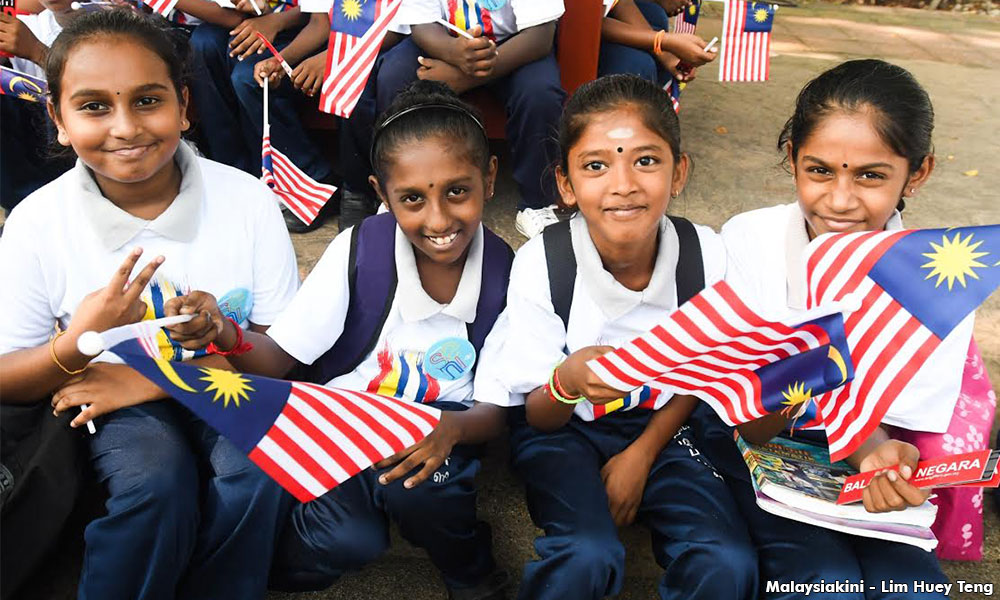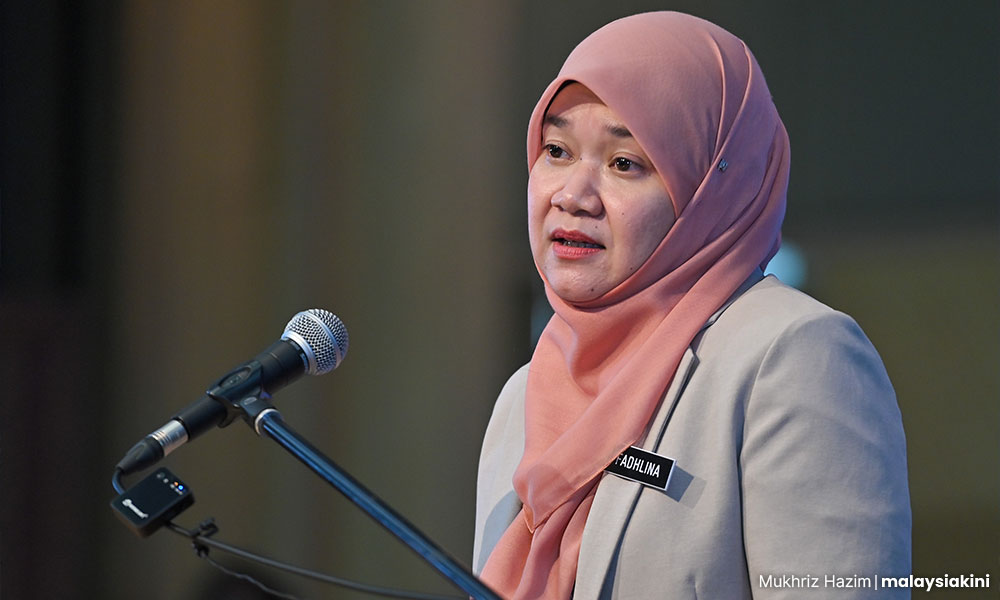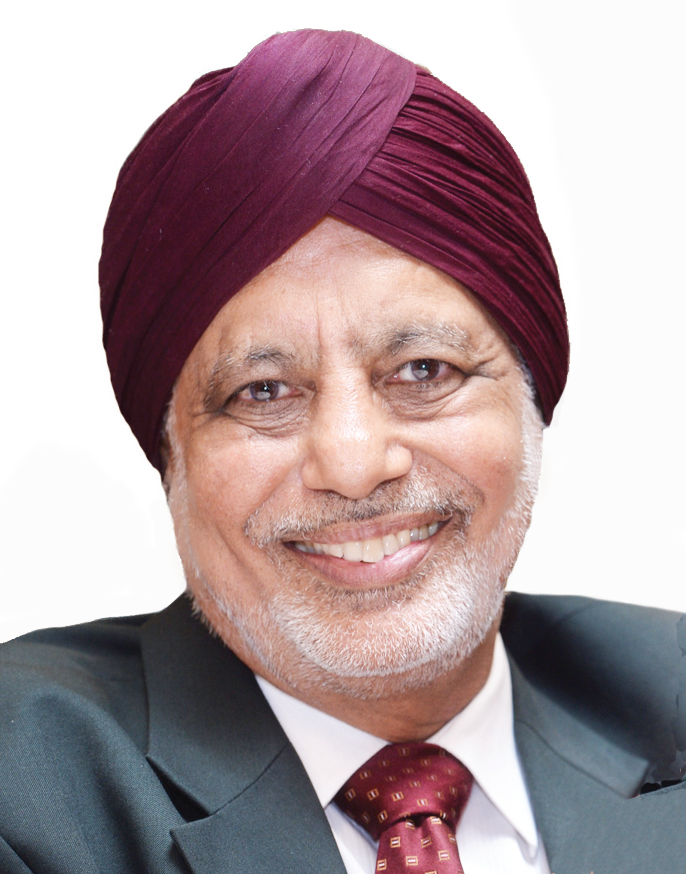
Ranjit Singh Malhi
COMMENT | Dear Prime Minister Anwar Ibrahim, undoubtedly Malaysia’s new government under your able leadership is a breath of fresh air.
I have been inspired to write this letter to you by the early signs I see emerging in the efforts your government is taking to build a “New Malaysia” that is inclusive, progressive, tolerant and meritocratic.
In short, “Malaysia for Malaysians”.
Indeed, you have touched the hearts of a majority of Malaysians through your following recent statements: “No Malaysian should be marginalised under my administration” and that “regardless of ethnicity, religious belief or region” no Malaysian “should be left to feel that they are ignored in any way.”
You have rightfully reiterated that we must all be proud of and not deny our multi-ethnic, multicultural and multi-religious heritage.
In our quest to create a “New Malaysia”, it is imperative that our students in schools study the nation’s history that is not only truthful but also inclusive.
As an intellectually-oriented prime minister and a keen student of history yourself, I know you will appreciate that the teaching of history in schools based upon textbooks that are factually accurate and inclusive plays a vital role in shaping the minds of our children and youths.
If taught correctly, history will help contribute to our efforts to forge a sense of national identity and belonging which is crucial for racial harmony and national unity in a multi-ethnic nation such as Malaysia. This sense of belonging and identity based upon a shared memory of the nation is a vital prerequisite for the future success and well-being of Malaysia in today’s highly competitive and challenging world.
Therefore, we must not deny the reality of our rich multi-religious and multi-cultural heritage. We must never omit parts of our history or tell half-truths to glorify a particular religion or ethnic group at the expense of other groups.
We must acknowledge the significant roles played by every segment of our society in the development of our beloved nation. In the words of Muhammad Adnan Bakhit, a renowned Jordanian professor of history, “All serious historical writing must respect all nations, ethnic groups, religions and cultures.”
Overt bias in history books
Sadly, our history textbooks since 1996 have been written with an overtly Islamic and Malay-centric bias while simultaneously downplaying or even erasing the roles of other ethnic groups, including those in Sabah and Sarawak.
In a paper (2010) titled “Malaysian Secondary School History Curriculum and Its Contribution towards Racial Integration”, the authors Abdul Razaq Ahmad, Ahamad Rahim, Ahmad Ali Seman and Mohd Johdi Salleh have argued, inter alia, that “the contents of the History curriculum need to be re-evaluated especially in making it not being Malay centric”, “the roles of all ethnic groups in achieving independenc[e] and harmonising the country should also be addressed” and the history textbooks should portray “the true history of Malaysians”, and not just the Malays.
The authors have also reiterated that the contributions and sacrifices of the non-Malays should be included in our History curriculum.
Similarly, Santhiram R Raman in his book “From Decolonization to Ethno-Nationalism: A Study of Malaysia’s School History Syllabuses and Textbooks 1905‒2020” states that “our education authorities need to discard the divisive “Ketuanan Melayu” mindset and start treating the non-Malays as Malaysians and stop this racial and religious prejudice in our textbooks.”
As you might already be aware, the latest edition of our secondary history textbooks, beginning with the publication of the Form 1 history textbook in 2016 and that of the Form 5 textbook in 2020, are blatantly lopsided (predominantly Malay and Islam-centric) and biased (intentionally omit significant facts relevant to nation-building).
Seventeen out of the eighteen writers of the Forms 1‒5 history textbooks are Malays. Hence, young Malaysians are now primarily learning government-sanctioned history specifically as viewed through the lens of one ethnic group.
Fundamentally, the history textbooks do not provide an adequate, balanced and fair account of the emergence and growth of Malaysia’s plural society.
COMMENT | Dear Prime Minister Anwar Ibrahim, undoubtedly Malaysia’s new government under your able leadership is a breath of fresh air.
I have been inspired to write this letter to you by the early signs I see emerging in the efforts your government is taking to build a “New Malaysia” that is inclusive, progressive, tolerant and meritocratic.
In short, “Malaysia for Malaysians”.
Indeed, you have touched the hearts of a majority of Malaysians through your following recent statements: “No Malaysian should be marginalised under my administration” and that “regardless of ethnicity, religious belief or region” no Malaysian “should be left to feel that they are ignored in any way.”
You have rightfully reiterated that we must all be proud of and not deny our multi-ethnic, multicultural and multi-religious heritage.
In our quest to create a “New Malaysia”, it is imperative that our students in schools study the nation’s history that is not only truthful but also inclusive.
As an intellectually-oriented prime minister and a keen student of history yourself, I know you will appreciate that the teaching of history in schools based upon textbooks that are factually accurate and inclusive plays a vital role in shaping the minds of our children and youths.
If taught correctly, history will help contribute to our efforts to forge a sense of national identity and belonging which is crucial for racial harmony and national unity in a multi-ethnic nation such as Malaysia. This sense of belonging and identity based upon a shared memory of the nation is a vital prerequisite for the future success and well-being of Malaysia in today’s highly competitive and challenging world.
Therefore, we must not deny the reality of our rich multi-religious and multi-cultural heritage. We must never omit parts of our history or tell half-truths to glorify a particular religion or ethnic group at the expense of other groups.
We must acknowledge the significant roles played by every segment of our society in the development of our beloved nation. In the words of Muhammad Adnan Bakhit, a renowned Jordanian professor of history, “All serious historical writing must respect all nations, ethnic groups, religions and cultures.”
Overt bias in history books
Sadly, our history textbooks since 1996 have been written with an overtly Islamic and Malay-centric bias while simultaneously downplaying or even erasing the roles of other ethnic groups, including those in Sabah and Sarawak.
In a paper (2010) titled “Malaysian Secondary School History Curriculum and Its Contribution towards Racial Integration”, the authors Abdul Razaq Ahmad, Ahamad Rahim, Ahmad Ali Seman and Mohd Johdi Salleh have argued, inter alia, that “the contents of the History curriculum need to be re-evaluated especially in making it not being Malay centric”, “the roles of all ethnic groups in achieving independenc[e] and harmonising the country should also be addressed” and the history textbooks should portray “the true history of Malaysians”, and not just the Malays.
The authors have also reiterated that the contributions and sacrifices of the non-Malays should be included in our History curriculum.
Similarly, Santhiram R Raman in his book “From Decolonization to Ethno-Nationalism: A Study of Malaysia’s School History Syllabuses and Textbooks 1905‒2020” states that “our education authorities need to discard the divisive “Ketuanan Melayu” mindset and start treating the non-Malays as Malaysians and stop this racial and religious prejudice in our textbooks.”
As you might already be aware, the latest edition of our secondary history textbooks, beginning with the publication of the Form 1 history textbook in 2016 and that of the Form 5 textbook in 2020, are blatantly lopsided (predominantly Malay and Islam-centric) and biased (intentionally omit significant facts relevant to nation-building).
Seventeen out of the eighteen writers of the Forms 1‒5 history textbooks are Malays. Hence, young Malaysians are now primarily learning government-sanctioned history specifically as viewed through the lens of one ethnic group.
Fundamentally, the history textbooks do not provide an adequate, balanced and fair account of the emergence and growth of Malaysia’s plural society.

For example, unlike earlier textbooks, the current history textbooks downplay the important contributions of the Chinese and Indian communities in the economic and infrastructure development of the nation.
The textbooks are virtually silent about the pioneering role of the Chinese in the development of commercial agriculture (pepper, gambier, tapioca and pineapple) in the Straits Settlements and Malay states during the nineteenth century.
Astonishingly, the vital role of the Chinese in the development of the nation’s tin mining industry is dismissed in about two to three sentences in the Form 3 history textbook.
Similarly, the contributions of Indians in the development of the Malayan rubber industry are scantly mentioned in about two sentences in the Form 3 textbook.
The history textbooks also omit the significant role of Indian labour in building roads, railways and bridges besides constructing ports, airports and government buildings.
They sadly forget to tell the important, poignant story whereby hundreds of thousands of Indians lost their lives due to disease, snake bites, exhaustion and malnutrition in helping to develop the infrastructure of modern Malaya.
Ironically, the ethnocentric approach of Malaysian history textbooks contradicts not only the “Malaysia Education Blueprint 2013‒2025” but also the objectives of the History Curriculum of the Secondary School Standard Curriculum.
Factual errors
The former states, inter alia, that an “unshakeable sense of national identity is necessary for Malaysia’s success and future” and “establishing a true national identity also requires a strong sense of inclusiveness.” Two of the objectives of the latter are to enable students to discuss the historical development of Malaysia to build a sense of identity, and the importance and role of various ethnic groups in nation-building.
Worse still, our history textbooks have been plagued with factual errors. For the record, I have not only pointed out more than 100 factual errors in our history textbooks since 1989 but also factual contradictions in the textbooks for different forms.
This is not surprising as several academics (including non-historians) with questionable credentials have been appointed as consulting experts to ascertain the factual accuracy of our history textbooks.
My dear prime minister, I trust you will agree with me that history textbook writing must be a scholarly pursuit and not one that is politically motivated and driven by the divisive agenda of ethnonationalism.
I hope and pray that you will do the needful to ensure that credible historians of proven repute and right-minded education officials are appointed as soon as possible to revamp our history curriculum, and review and improve the content of the current school history textbooks based upon the “Malaysia-centric framework”.
Equally important, the writers of the history textbooks should be drawn from various ethnic groups and selected strictly based on merit and appropriate qualifications.
I know that you have several other priorities and urgent matters to address in making Malaysia great again. Nevertheless, I trust you will find time to look into this important matter of revamping our school history textbooks, and perhaps task the new Education Minister Fadhlina Sidek to handle it.

Education Minister Fadhlina Sidek
I have raised this issue of bias, historical distortions and factual inaccuracy in our history textbooks several times over the last three decades without any success.
But as a historian and more so as a true Malaysian patriot, I am trying again and hope that under your leadership, appropriate and timely action is taken to set things right for the good of the nation.
RANJIT SINGH MALHI is an independent historian who has written 19 books on Malaysian, Asian and world history. He is highly committed to writing an inclusive and truthful history of Malaysia based upon authoritative sources.
I have raised this issue of bias, historical distortions and factual inaccuracy in our history textbooks several times over the last three decades without any success.
But as a historian and more so as a true Malaysian patriot, I am trying again and hope that under your leadership, appropriate and timely action is taken to set things right for the good of the nation.
RANJIT SINGH MALHI is an independent historian who has written 19 books on Malaysian, Asian and world history. He is highly committed to writing an inclusive and truthful history of Malaysia based upon authoritative sources.

All Ranjit can do is to continue his knocking on doors. But, I doubt if there will be any change.
ReplyDeleteI hope to be proven wrong. Maybe the new Education Minister is a trail blazer and will pick up the cudgels on behalf of Ranjit.
Maybe one day pigs can fly.